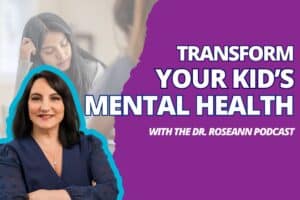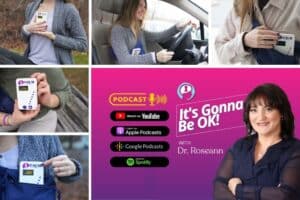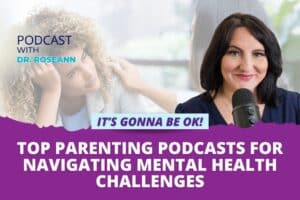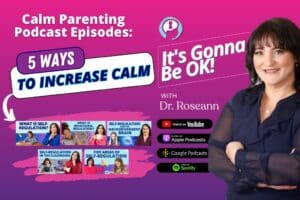Obsessive-Compulsive Disorder (OCD) is a mental health condition that affects people of all ages, including children. It is characterized by intrusive and obsessive thoughts that lead to repetitive behaviors or rituals, and it can significantly impact a child's daily life. So, what are the most common OCD intrusive thoughts examples?
Before we get into that, it’s important to first learn about the subtypes of OCD. There are distinct OCD subtypes that bring unique challenges in children, and each needs a tailored approach for effective intervention. Among kids and teens, Harm OCD is the most common.
Harm OCD is characterized by unwanted intrusive thoughts in which children experience intense anxiety about causing harm to themselves or others. To cope with the fear of harming, they develop rituals aimed at preventing harm.
There’s another subtype identified among children called Contamination OCD. This is one of the common types of obsessions that revolve around an overwhelming fear of germs or contamination. Such fear prompts compulsive behaviors like frequent handwashing or avoidance of specific places perceived as dirty.
The Checking and Doubt subtype is also seen among younger individuals, and it involves common obsessions related to potential harm or danger, leading children to engage in repetitive checking rituals as a means to alleviate their doubts and fears.
Regardless of the subtype, intrusive thoughts are present in the mind of every child with OCD. Intrusive thoughts are unwelcome and distressing ideas that persistently enter the mind, causing intense fear and anxiety (Julien et al., 2007).
Common OCD Intrusive Thoughts Examples Kids Have
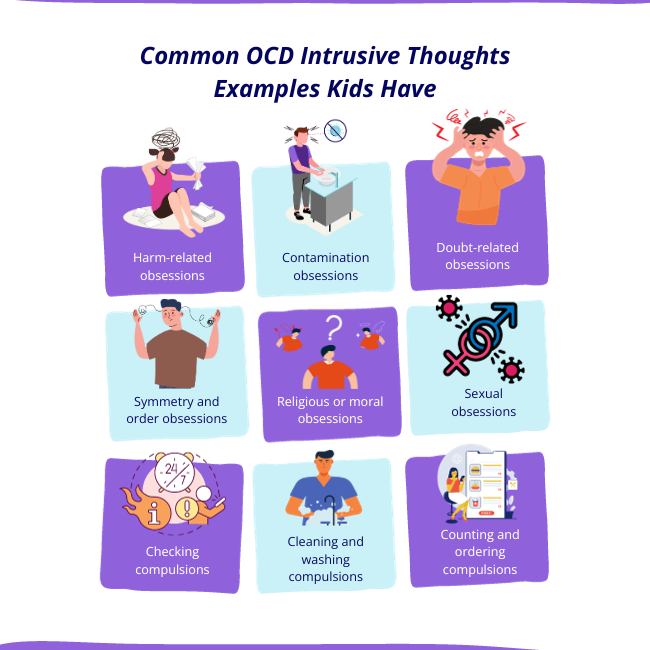
Intrusive thoughts are unwanted thoughts that are distressing to the child. To try to alleviate the anxiety caused by these involuntary thoughts, they may engage in compulsions. Intrusive thoughts include the common themes experienced by those with harm, contamination, and checking OCD as previously described. Here are some types of intrusive thoughts that can affect your child's day-to-day life.
Harm-related obsessions:
- Fear of causing harm to oneself or others.
- Experiences intrusive thoughts about intentionally hurting someone, even though the person has no intention of doing so.
- Worries about violent thoughts and being responsible for a catastrophic or traumatic event.
Contamination obsessions:
- Fear of being contaminated by germs, dirt, or toxins.
- Obsessive concerns about getting sick from touching certain objects or surfaces.
- Fear of spreading illness to others.
Doubt-related obsessions:
- Constant doubt about whether one has completed a task correctly (e.g., locking the door, turning off the stove).
- Obsessive fears about making a catastrophic mistake.
Symmetry and order obsessions:
- Need for things to be arranged in a specific, symmetrical order.
- Intense discomfort when things are perceived as being out of order or unbalanced.
Religious or moral obsessions:
- Fear of committing a sin or going against one's moral or religious beliefs.
- Intrusive thoughts about inappropriate or blasphemous actions.
Sexual obsessions:
- Intrusive sexual thoughts that go against one's sexual orientation or values.
- Fear of being attracted to inappropriate individuals.
Checking compulsions:
- Repeatedly checking doors, appliances, or other items to ensure they are secure.
- Checking for physical symptoms or signs of illness.
Cleaning and washing compulsions:
- Excessive handwashing or cleaning to alleviate fears of contamination.
- Avoidance of specific places or objects perceived as dirty.
Counting and ordering compulsions:
- Counting in a specific way to prevent harm or bring about a positive outcome.
- Arranging objects in a specific order to reduce anxiety.
Natural Therapies for Children with Obsessive Thoughts and Compulsive Behaviors
The first step to address symptoms of OCD or even occasional intrusive thoughts is therapy. Cognitive Behavioral Therapy (CBT) is a well-established therapeutic approach for managing any mental health disorder, particularly OCD, in children.
Exposure and Response Prevention Therapy (ERP) is a specific form of CBT that involves gradually exposing the child to their fears while preventing the usual compulsive response (McKay et al., 2015). Together, these therapies empower children to face their anxieties and develop healthier coping mechanisms.
Imagine a child with a fear of contamination. Through CBT, they learn to challenge disturbing thoughts about germs, and ERP exposes them to situations involving perceived dirtiness without allowing compulsive behaviors like excessive handwashing. The OCD specialist will help them through the emotional distress caused by their OCD obsessions so they could normally go through their daily activities without worries.
Time and time again in our trademarked program, we combine natural therapies that calm and regulate the CNS with psychotherapy to give kids the tools they need. Zina came to us in the early stages of OCD and we were able to quickly calm her obsessive brain and give her the skills to tackle her rituals. Her parents were great and learned how not to accommodate the OCD, so she recovered quickly and never experienced an episode again.
Magnesium for Brain Health and OCD Management
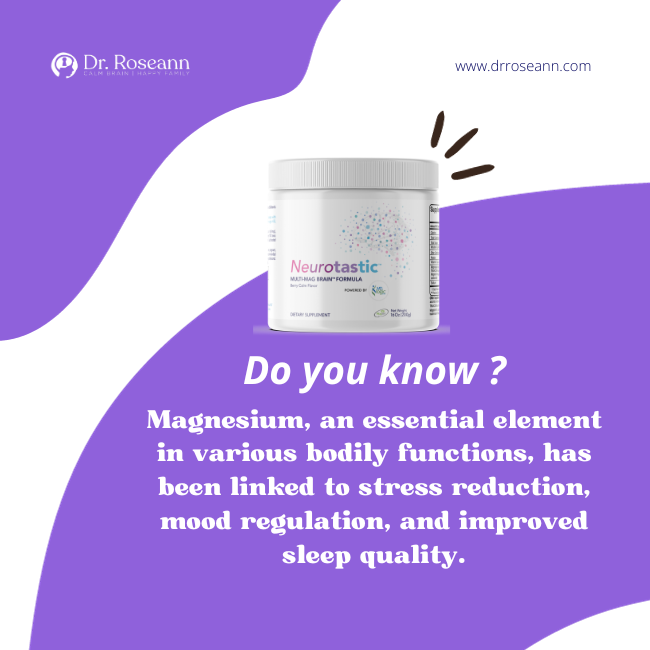
While therapy is crucial, it's equally important to explore natural solutions that support overall brain health in people with OCD. Natural interventions can enhance attention, regulate mood, manage stress, and improve behavior, providing a holistic approach to managing the challenges of obsessive compulsive disorder.
Magnesium, an essential element in various bodily functions, has been linked to stress reduction, mood regulation, and improved sleep quality. These are crucial aspects for children navigating the challenges of OCD treatment, particularly the use of Selective Serotonin Reuptake Inhibitors.
Existing research suggests a potential connection between magnesium deficiency and anxiety disorders, emphasizing the importance of maintaining adequate magnesium levels for children's mental well-being (Oddoux et al., 2022).
The benefits of incorporating magnesium into a child's routine extend beyond its potential to alleviate OCD symptoms. It can also help with post-traumatic stress disorder, streptococcal infections, postpartum depression, Parkinson’s disease, and related disorders where experiencing significant distress is common. Obtain magnesium from dietary sources like leafy greens, nuts, and whole grains, as a well-balanced diet for overall brain health.
While magnesium supplements are an option, careful consideration and consultation with a mental health professional are essential to ensure appropriateness and safety. The Neurotastic Multi-Mag Brain Formula combines different forms of magnesium that specifically support brain health.
A comprehensive treatment approach is also very important, which means combining magnesium intake with therapeutic strategies such as cognitive-behavioral therapy and exposure and response prevention can provide parents with a holistic toolkit for supporting their child's mental health.
Furthermore, parents must nurture their child's mental health with mindfulness, along with relaxation techniques to further boost the effect of magnesium in their daily lives. By approaching OCD management with a personalized and comprehensive perspective, parents can empower their children on a path toward optimal mental and emotional well-being.
Parent Action Steps
☐ Learn more about OCD by listening to my It’s Gonna Be OK! Podcast and the OCD series.
☐ Ensure that each family member fosters open communication with your child about their OCD symptoms and feelings.
☐ Consult a mental health professional to tailor cognitive-behavioral therapy interventions for your child's specific OCD subtype.
☐ Take the OCD Quiz to find the right treatment plan for your child.
☐ Use the Solutions Matcher for a more personalized support
Citations
Julien, D., O’Connor, K. P., & Aardema, F. (2007). Intrusive thoughts, obsessions, and appraisals in obsessive–compulsive disorder: A critical review. Clinical Psychology Review, 27(3), 366–383. https://doi.org/10.1016/j.cpr.2006.12.004
McKay, D., Sookman, D., Neziroglu, F., Wilhelm, S., Stein, D. J., Kyrios, M., Matthews, K., & Veale, D. (2015). Efficacy of cognitive-behavioral therapy for obsessive–compulsive disorder. Psychiatry Research, 225(3), 236–246. https://doi.org/10.1016/j.psychres.2014.11.058
Oddoux, S., Violette, P., Cornet, J., Akkoyun-Farinez, J., Besnier, M., Noël, A., & Rouillon, F. (2022). Effect of a Dietary Supplement Combining Bioactive Peptides and Magnesium on Adjustment Disorder with Anxiety: A Clinical Trial in General Practice. Nutrients, 14(12), 2425. https://doi.org/10.3390/nu14122425
Dr. Roseann is a mental health expert who frequently is in the media:
- Insider: What is OCD?
- What to Expect: Why Does My Toddler Keep Pulling Her Own Hair?
- Parade: Olympic Boxer
- MomsCove How to Help a Child with Anxiety and OCD
- Epidemic Answers: Neurofeedback for ADHD, anxiety, OCD and mood
- BCIA: Calming the OCD Brain with Neurofeedback and ERP Therapy
- Hope for Anxiety and OCD: Sudden Onset OCD
- Integrative Practitioner: Integrative Approaches to Treating OCD
- HappiHuman: Is it an Eating Disorder or OCD
Are you looking for SOLUTIONS for your struggling child or teen?
Dr. Roseann and her team are all about science-backed solutions, so you are in the right place!
Grab your complimentary copy of
147 Therapist-Endorsed Self-Regulation Strategies for Children: A Practical Guide for Parents
You can get her books for parents and professionals, including: It’s Gonna Be OK™: Proven Ways to Improve Your Child’s Mental Health, Teletherapy Toolkit™ and Brain Under Attack: A Resource For Parents and Caregivers of Children With PANS, PANDAS, and Autoimmune Encephalopathy.
If you are a business or organization that needs proactive guidance to support employee mental health or an organization looking for a brand representative, check out Dr. Roseann’s professional speaking page to see how we can work together.
Dr. Roseann is a Children’s Mental Health Expert and Licensed Therapist who has been featured in/on hundreds of media outlets including The Mel Robbins Show, CBS, NBC, PIX11 NYC, Today, FORBES, CNN, The New York Times, The Washington Post, Business Insider, Women’s Day, Healthline, CNET, Parade Magazine and PARENTS. FORBES called her, “A thought leader in children’s mental health.”

She coined the terms, “Re-entry panic syndrome” and “eco-anxiety” and is a frequent contributor to media on mental health.
Dr. Roseann Capanna-Hodge has three decades of experience in working with children, teens and their families with attention-deficit hyperactivity disorder (ADHD), autism, concussion, dyslexia and learning disability, anxiety, Obsessive Compulsive Disorder (OCD), depression and mood disorder, Lyme Disease, and PANS/PANDAS using science-backed natural mental health solutions such as supplements, magnesium, nutrition, QEEG Brain maps, neurofeedback, PEMF, psychotherapy and other non-medication approaches.
She is the author of three bestselling books, It’s Gonna Be OK!: Proven Ways to Improve Your Child's Mental Health, The Teletherapy Toolkit, and Brain Under Attack. Dr. Roseann is known for offering a message of hope through science-endorsed methods that promote a calm brain.
Her trademarked BrainBehaviorResetⓇ Program and It’s Gonna be OK!Ⓡ Podcast has been a cornerstone for thousands of parents facing mental health, behavioral or neurodevelopmental challenges.
She is the founder and director of The Global Institute of Children’s Mental Health, Neurotastic™Brain Formulas and Dr. Roseann Capanna-Hodge, LLC. Dr. Roseann is a Board Certified Neurofeedback (BCN) Practitioner, a Board Member of the Northeast Region Biofeedback Society (NRBS), Certified Integrative Mental Health Professional (CIMHP) and an Amen Clinic Certified Brain Health Coach. She is also a member of The International Lyme Disease and Associated Disease Society (ILADS), The American Psychological Association (APA), Anxiety and Depression Association of America (ADAA) National Association of School Psychologists (NASP), International OCD Foundation (IOCDF).
© Roseann-Capanna-Hodge, LLC 2023



